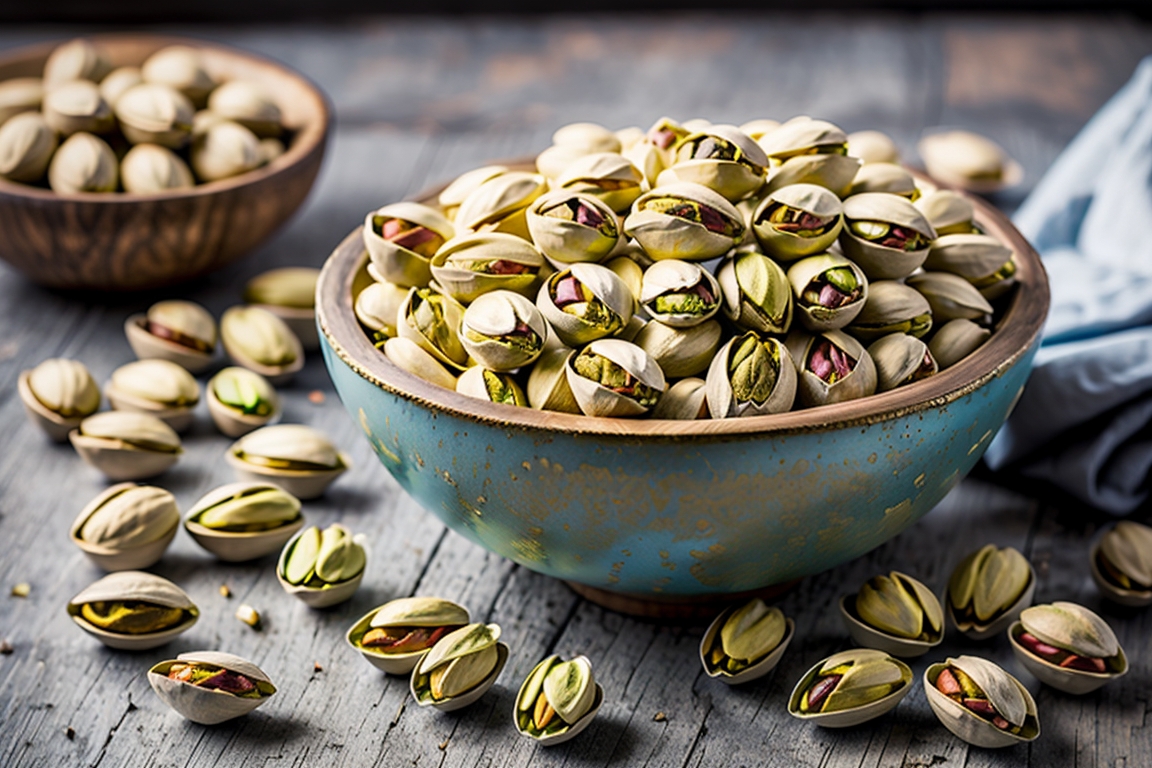Pistachios, known for their unique flavor and health benefits, are a popular snack worldwide. However, like many foods, pistachios can have side effects that consumers should be aware of. In this article, we will explore the potential side effects of pistachios, shedding light on the less commonly discussed aspects of consuming these delicious nuts.
From allergic reactions to digestive issues, understanding the possible side effects of pistachios is crucial for maintaining a balanced and informed approach to incorporating them into your diet.
The potential side effects of consuming pistachios
Pistachios are not only delicious but also packed with health benefits. While they are generally safe for most people, some individuals may experience adverse reactions when consuming pistachios.
Common potential side effects of consuming pistachios include:
-
- Allergic reactions: Pistachios are a common allergen and can trigger allergic reactions in some individuals. Symptoms may include itching, swelling, hives, and in severe cases, anaphylaxis.
-
- Weight gain: Pistachios are high in calories and fat, so over consumption can lead to weight gain if not eaten in moderation.
-
- Gastrointestinal issues: Eating too many pistachios at once may cause digestive problems such as bloating, gas, or diarrhea.
In rare cases, pistachios can also interact with certain medications or exacerbate conditions like kidney stones due to their oxalate content. It’s essential to enjoy pistachios in moderation and consult a healthcare professional if you have any concerns or experience unusual symptoms after consuming them.
Allergic reactions linked to pistachios: symptoms and management
Pistachios are delightful nuts enjoyed by many, but for some individuals, they can trigger allergic reactions that range from mild to severe. Symptoms of pistachio allergies can manifest in various ways, including itchy skin, swelling, digestive issues, shortness of breath, and even anaphylaxis in extreme cases. It is crucial for people with pistachio allergies to be vigilant about their symptoms and seek medical attention if they experience any adverse reactions after consumption.
Managing pistachio allergies involves avoiding pistachio-containing foods and being cautious about cross-contamination in food preparation. Individuals with a known pistachio allergy should always read food labels carefully, inform restaurant staff about their allergy, and carry an epinephrine auto-injector in case of emergencies. Consulting with an allergist for proper diagnosis, creating a personalized management plan, and staying informed about potential hidden sources of pistachios in foods are essential steps in effectively dealing with pistachio allergies.
Impact of overindulging in pistachios on digestive health
Overindulging in pistachios may lead to digestive issues due to their high fiber and fat content. Excessive consumption of pistachios can cause bloating, gas, and even diarrhea in some individuals.
Fiber plays a crucial role in digestive health, but consuming too much fiber, especially from pistachios, can overwhelm the digestive system. Moreover, the high fat content in pistachios can also lead to digestive discomfort if consumed excessively. To avoid these side effects, it’s essential to enjoy pistachios in recommended portions and balance them with other nutritious foods to promote overall digestive well-being.
The risks of eating rancid pistachios
Eating rancid pistachios can pose various health risks due to the development of harmful compounds in the nuts. Rancidity in pistachios can occur when they are stored improperly or for too long, leading to a stale, bitter taste and off odors. Consuming rancid pistachios may result in digestive issues such as nausea, vomiting, and stomach discomfort.
Also, rancid pistachios may contain oxidized fats that can have detrimental effects on health when consumed regularly. These oxidized fats can contribute to inflammation in the body and may even increase the risk of chronic diseases over time. Therefore, it is essential to check the freshness of pistachios before consumption to avoid potential adverse effects on your health.
The role of pistachios as a migraine trigger
Pistachios have been linked to triggering migraines in some individuals. For those prone to migraines, it’s crucial to be aware of potential triggers, and pistachios might be one of them. Certain components in pistachios such as tyramine and phenylethylamine could potentially contribute to migraine episodes in susceptible individuals.
If you experience migraines and suspect that pistachios might be a trigger, it’s advisable to keep a food diary to track your symptoms and food intake. By identifying patterns, you can better understand how pistachios or other foods may be influencing your migraines. Consulting with a healthcare professional or a registered dietitian specializing in migraine management can also provide valuable insights and guidance on adjusting your diet to potentially reduce migraine triggers.
Summary
In conclusion, being aware of the potential side effects of consuming pistachios is crucial for maintaining your overall well-being. While pistachios offer numerous health benefits, such as being a good source of protein and healthy fats, it’s important to consume them in moderation to prevent any unfavorable reactions. If you experience any adverse effects after eating pistachios, such as allergic reactions or digestive issues, it’s advisable to consult a healthcare professional for personalized guidance.
Remember, staying informed and listening to your body’s reactions are key factors in maintaining a balanced and healthy diet. Thank you for taking the time to explore the potential side effects of pistachios with us.



